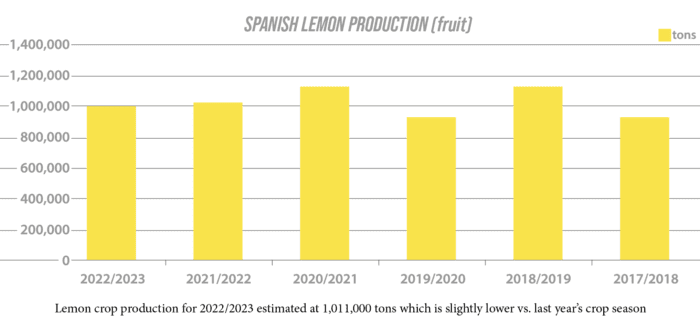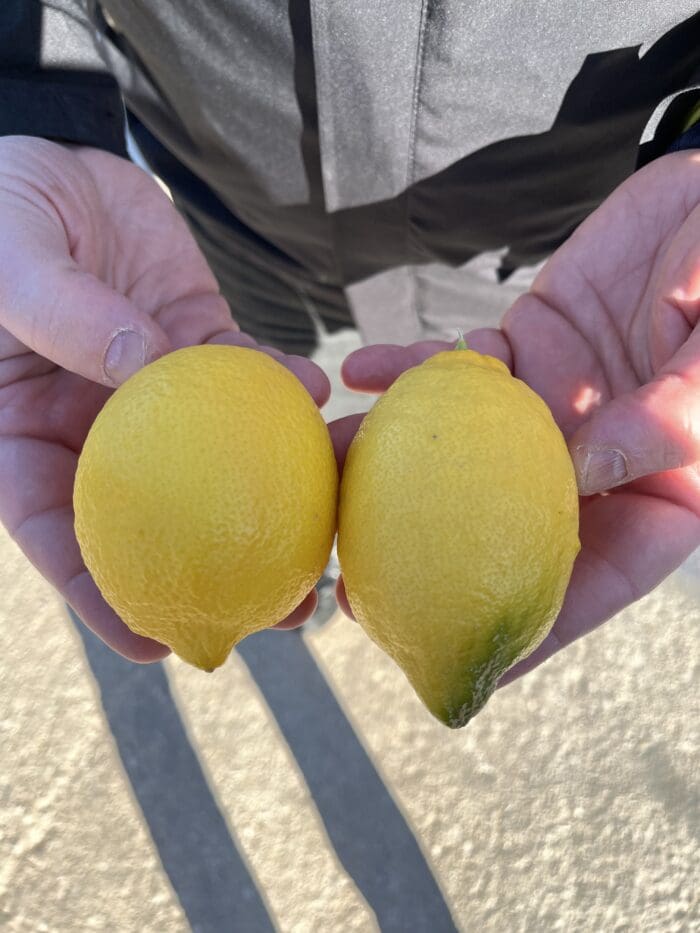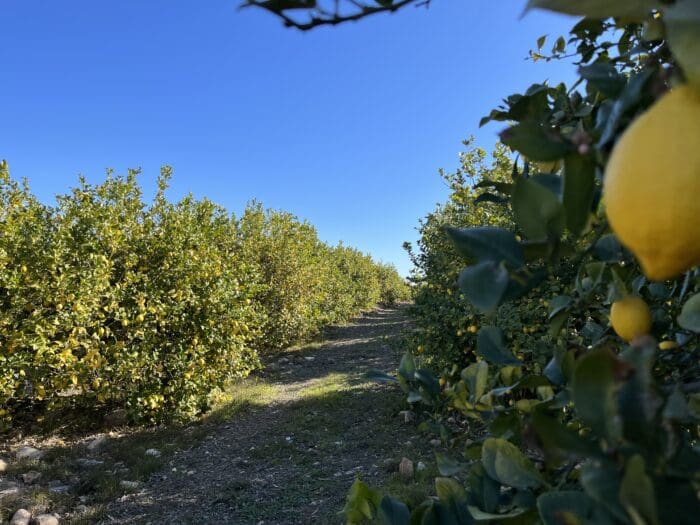
The Future of Spanish Lemon Production
Spain is one of the oldest and most important lemon producers in the world.
Backed by centuries of traditional growing practices and a booming fresh fruit market, Spain produces approximately 1.0 to 1.2 million tons of lemons each year, making it the world’s second largest producer of lemon for commercial markets. Its main lemon-producing regions are Murcia, Valencia, and Andalusia.

One of Spain’s main strengths as a lemon producer is its unique ability to grow and process new lemons all year round. This is enabled by the region’s two varieties of lemon: Fino & Verna.
Fino lemons are a more traditional, spherical variety of lemon that grows abundantly throughout Spain. Also known as “winter lemon,” the fruit has a light color and thin skin, making it very appealing for both fresh and processed markets. The Fino lemon season runs from September to April and generally provides a higher juice content than other Spanish lemon varieties.
Verna lemons, on the other hand, are an elongated variety of lemon with a thicker skin and fewer seeds. Also known as “summer lemon,” the fruit is only cultivated in Spain, with a season that runs from May to July. This unique seasonality provides Spain with fresh lemon material all year round.

The organic market also plays a major role in Spanish lemon production. There are almost 10,300 hectares of organic lemon orchards in Spain, which represents 20% of all the land used for Spanish lemon production. This area has steadily increased over the last decade, up from 2,000 hectares in 2012. Such widespread organic farming operations have placed Spain at the forefront of the world’s organic lemon market: more than 170,000 tons of organic lemons are shipped from Spain each year.
The future of Spanish lemon production is firmly rooted in sustainability. Lemon has the lowest water footprint of any crop in Spain (271m³ /t), and its environmental efficiency has increased dramatically over the last 30 years. Organic lemon orchards in Spain also double as important conservation sites for various species, including the Long-Fingered Bat, which preys upon agricultural pests like Phyllocnistis citrella.

AILIMPO has estimated that annual lemon production in Spain will increase to 1.8 million tons by 2026: the Spanish Ministry of Agriculture has provided additional investment in lemon orchards, and demand for lemon from EU fresh markets has steadily grown. International interest in Spanish lemon is now reaching an all-time high: strong availability, good quality, and a burgeoning organic market have all pushed Spain into a prominent position as a global citrus oil supplier.
See all info of:







